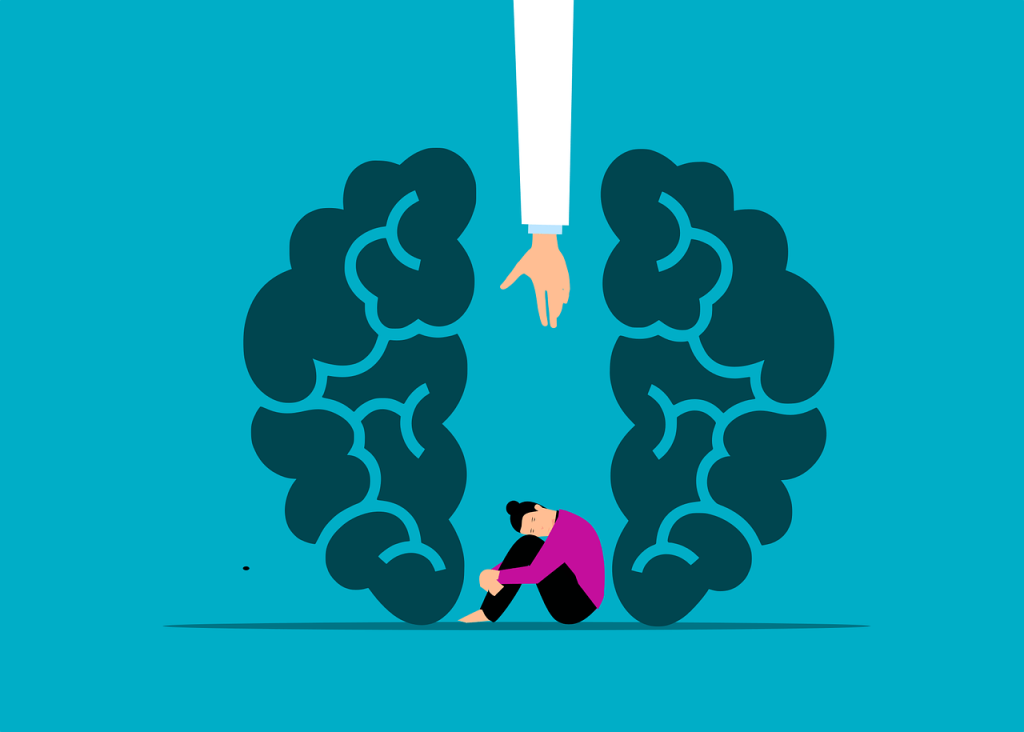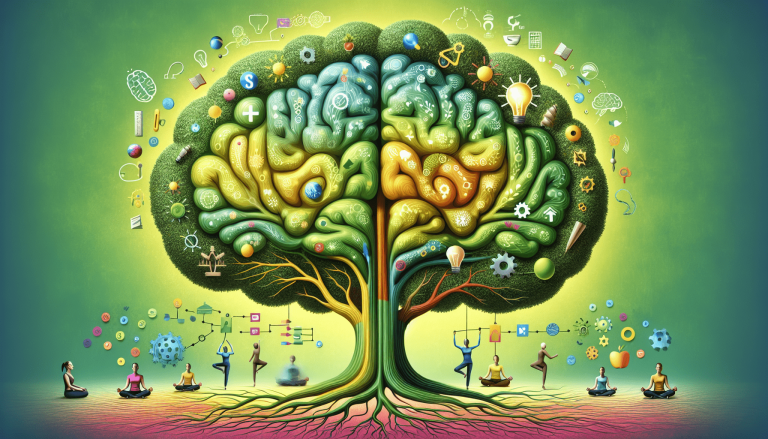What Are Signs Of Mental Stress?
In today’s fast-paced world, it is crucial to take care of your mental health just as much as your physical well-being. Mental stress can affect anyone at any time, and recognizing the signs is the first step towards finding relief. This article explores common indicators of mental stress, shedding light on the symptoms that might often go unnoticed. From sleep disturbances to heightened irritability, understanding these signs can help you navigate the challenges of modern life with a greater sense of awareness and self-care. Mental stress can manifest in a variety of ways, affecting both our minds and bodies. It’s important to recognize these signs early on so that we can take steps to manage and alleviate our stress levels. Here are some of the most common physical symptoms of mental stress.
Headaches
One of the most prevalent physical symptoms of mental stress is the onset of headaches. Stress can lead to tension in the muscles of the head and neck, causing throbbing or dull headaches. These headaches can significantly impact your daily life, making it difficult to concentrate or perform tasks effectively.
Muscle tension and pain
Stress often manifests in our bodies through muscle tension and pain. When we’re stressed, our muscles tend to tighten, which can result in discomfort or even chronic pain. This can be particularly noticeable in the shoulders, neck, and back. Regular exercise, stretching, and relaxation techniques like yoga or meditation can help alleviate this tension.
Fatigue
Feeling tired and lacking energy is another common physical symptom of mental stress. High levels of stress can disrupt your sleep patterns, leaving you feeling fatigued, even after a full night’s rest. Additionally, the constant worry or racing thoughts associated with stress can make it challenging to relax and recharge.
Trouble sleeping
Difficulty falling asleep or staying asleep, also known as insomnia, can be a direct result of mental stress. Stress and anxiety can make it challenging to quiet the mind, leading to restless nights and an overall lack of quality sleep. Establishing a consistent nighttime routine, creating a calm sleep environment, and practicing relaxation techniques can help improve your sleep.
Digestive problems
Mental stress has a significant impact on our digestive system. It can cause a range of symptoms, including stomachaches, bloating, indigestion, and changes in the frequency of bowel movements. Chronic stress can even trigger or exacerbate gastrointestinal conditions like irritable bowel syndrome (IBS). Eating a balanced diet, staying hydrated, and engaging in stress-reducing activities can help promote a healthy digestive system.
In addition to physical symptoms, mental stress can also lead to a range of emotional symptoms that can affect our overall well-being.
Anxiety
Feeling a heightened sense of worry or nervousness is a common emotional symptom of mental stress. Anxiety can manifest as racing thoughts, restlessness, and an overwhelming feeling of unease. It’s essential to identify and address the underlying causes of anxiety to manage stress effectively.
Irritability or anger
Stress can make even the smallest frustrations feel overwhelming, leading to increased irritability or anger. You may find yourself snapping at loved ones or reacting disproportionately to minor inconveniences. Recognizing and managing your anger can help diffuse tense situations and improve your relationships.

Sadness or depression
Mental stress can also contribute to feelings of sadness or depression. Chronic stress can deplete your emotional reserves and leave you feeling emotionally drained. It’s crucial to engage in activities that bring you joy, seek support from loved ones, and consider professional help if these feelings persist.
Feeling overwhelmed
When stress becomes overwhelming, it can lead to a persistent feeling of being overwhelmed. This can make it challenging to prioritize tasks, meet deadlines, or make decisions. Developing effective time management strategies and seeking support can alleviate this overwhelming sensation.
Mood swings
Mood swings, characterized by rapid and intense shifts in emotions, can be a sign of mental stress. Stress can disrupt the delicate balance of neurotransmitters in our brain, leading to sudden changes in mood or emotions. Engaging in stress-reducing activities, such as regular exercise and mindfulness practices, can help stabilize mood fluctuations.
Behavioral symptoms can also arise as a result of mental stress, potentially impacting our daily lives and relationships.
Changes in appetite
Stress can affect our appetite in various ways. Some individuals may experience a loss of appetite, leading to unintended weight loss. Others may turn to emotional eating, using food as a coping mechanism to relieve stress. It’s essential to pay attention to your eating habits and strive for a balanced diet during times of stress.
Social withdrawal
When overwhelmed by mental stress, individuals may withdraw from social activities and isolate themselves. They may feel a sense of shame or believe that others won’t understand what they’re going through. However, staying connected with friends and loved ones can provide valuable support and perspective during challenging times.
Procrastination or neglecting responsibilities
Stress can often lead to a lack of motivation and productivity, resulting in procrastination or neglecting responsibilities. This can further exacerbate stress levels, as tasks begin to pile up and deadlines loom closer. Breaking tasks into smaller, manageable steps and seeking support can help combat procrastination.
Increased alcohol or drug use
Seeking temporary relief from stress, some individuals may turn to alcohol or drugs as a coping mechanism. However, substance abuse can worsen the effects of stress, leading to a harmful cycle of dependence. Identifying healthier coping mechanisms and seeking professional help for substance abuse is crucial for long-term well-being.

Restlessness or fidgeting
Feeling restless, having difficulty staying still, or constantly fidgeting can be behavioral manifestations of mental stress. This can stem from an overactive mind or a buildup of nervous energy. Engaging in physical activities like exercise or practicing relaxation techniques can help reduce restlessness.
Cognitive symptoms, or changes in thinking patterns, can also indicate mental stress.
Difficulty concentrating
Stress can make it challenging to concentrate and focus on tasks. Racing thoughts and worry can often overshadow our ability to pay attention, leading to decreased productivity and feelings of frustration. Taking regular breaks, practicing mindfulness exercises, and creating a conducive work environment can improve concentration.
Memory problems
When under stress, our memory can be negatively affected, making it more challenging to recall important information. Forgetfulness and frequent lapses in memory can contribute to stress levels and increase feelings of anxiety. Techniques such as taking notes, practicing mnemonic devices, and engaging in memory-boosting activities can help improve memory function.
Racing thoughts
Mental stress can lead to a cascade of racing thoughts, making it difficult to quiet the mind and focus on the present moment. Worries about the past or future can consume our thoughts, negatively affecting our overall well-being. Engaging in activities that promote relaxation, such as deep breathing or journaling, can help calm racing thoughts.
Constant worrying
Excessive worrying is a cognitive symptom commonly associated with mental stress. This chronic state of worry can lead to a persistent feeling of unease and overthinking. Learning to identify and challenge irrational thoughts, as well as practicing relaxation techniques, can help manage constant worrying.
Poor decision-making
Stress can impair our ability to make sound decisions, leading to poor choices that can further contribute to stress levels. Overthinking, lack of focus, and emotional overload can all impact our decision-making abilities. Engaging in activities that promote mental clarity, seeking advice from trusted individuals, and taking a step back before making decisions can help improve choices while under stress.
Interpersonal symptoms may arise when stress impacts our relationships and interactions with others.
Relationship conflicts
High levels of stress can strain relationships, leading to conflicts and misunderstandings. Stress can affect our ability to communicate effectively and empathetically, further exacerbating tension with others. Practicing active listening, expressing emotions openly and honestly, and seeking couples or family therapy can help navigate relationship conflicts during times of stress.

Difficulty trusting others
During periods of mental stress, some individuals may find it challenging to trust others or feel vulnerable in interpersonal relationships. This can stem from a fear of being judged, a belief that others won’t understand, or a general sense of emotional withdrawal. Building trust slowly, seeking support from trusted individuals, and practicing open communication can help alleviate these concerns.
Isolation or loneliness
Stress can lead individuals to isolate themselves, feeling a sense of loneliness or detachment from others. This isolation can contribute to worsening mental health and amplify the effects of stress. Actively seeking social connections, participating in group activities, and reaching out to loved ones can counteract feelings of loneliness.
Lack of interest in socializing
When overwhelmed by mental stress, individuals may lose interest in social activities and withdraw from their usual social circle. Engaging in social activities, even in small doses, can help foster a sense of connection and provide much-needed support during stressful times.
Communication problems
Stress can impact our ability to communicate effectively, making it challenging to express our emotions or needs clearly. This can lead to misunderstandings, frustration, and ultimately, added stress. Seeking therapy or practicing active communication techniques can improve interpersonal interactions and reduce communication problems.
Occupational symptoms of mental stress can affect our performance and satisfaction in the workplace.
Decreased productivity
Stress can significantly impact our productivity, leading to difficulty staying focused on tasks and achieving desired outcomes. Deadlines may become overwhelming, and motivation may decline, resulting in decreased overall productivity. Setting realistic goals, practicing time management techniques, and seeking support from supervisors or colleagues can help increase productivity.
Difficulty staying focused on tasks
When under stress, maintaining focus and concentration on tasks can become a challenge. Racing thoughts and worries can hijack our attention and make it difficult to stay engaged with the task at hand. Creating a conducive work environment, minimizing distractions, and implementing focus-enhancing techniques can help improve concentration.
Job dissatisfaction
High levels of stress can contribute to job dissatisfaction, leading to decreased overall job performance and satisfaction. Increased work demands, unrealistic expectations, and a toxic work environment can all contribute to job dissatisfaction. Engaging in stress-reducing activities outside of work, seeking support from coworkers or supervisors, or considering a change in the work environment can help alleviate feelings of dissatisfaction.

Increased absenteeism
Prolonged mental stress can result in increased absenteeism from work, as individuals may struggle to cope with their stress levels. Frequent sick days or personal days can significantly impact productivity and job security. It’s crucial to prioritize self-care, seek professional help when needed, and communicate openly with supervisors regarding mental health concerns.
Burnout
The cumulative effects of chronic stress can lead to burnout, often characterized by a state of physical, emotional, and mental exhaustion. Burnout can result in decreased motivation, a sense of detachment from work, and an overall feeling of being overwhelmed. Practicing self-care, setting boundaries, and seeking support from colleagues or mental health professionals can aid in preventing or managing burnout.
Mental stress can also impact our physical health, leading to a range of symptoms and conditions.
Weakened immune system
Prolonged mental stress can weaken the immune system, making individuals more susceptible to infections and illnesses. Stress hormones can impact the body’s ability to fight off pathogens, leading to frequent colds, flu, or other infections. Engaging in stress management techniques, practicing good hygiene, and maintaining a healthy lifestyle can help support a robust immune system.
Chronic pain or illness flare-ups
Stress can exacerbate chronic pain conditions or contribute to the onset of new physical symptoms. Conditions such as fibromyalgia, arthritis, or migraines can worsen under the strain of mental stress. Managing stress levels, engaging in relaxation techniques, and seeking proper medical care are crucial to minimizing pain or illness flare-ups.
High blood pressure
Mental stress can elevate blood pressure, posing a significant risk to cardiovascular health. Over time, chronic stress can contribute to hypertension and increase the likelihood of heart disease. Engaging in stress-reducing activities, maintaining a healthy diet, and regularly monitoring blood pressure can help manage the impact of stress on cardiovascular health.
Cardiovascular problems
Chronic stress can have detrimental effects on the cardiovascular system, leading to an increased risk of heart disease, heart attacks, and strokes. Elevated stress hormones and fluctuations in blood pressure can contribute to the development of these cardiovascular issues. Taking steps to manage stress levels, engaging in regular physical activity, and adopting a heart-healthy lifestyle can help reduce the risk of cardiovascular problems.
Weight fluctuations
Mental stress can disrupt our eating habits and contribute to weight fluctuations. Some individuals may experience weight gain, often as a result of emotional eating or cravings for unhealthy foods. Others may experience unintentional weight loss due to a loss of appetite. Striving for a balanced diet, practicing intuitive eating, and engaging in regular exercise can help manage weight fluctuations caused by stress.
Sleep disturbances are another common manifestation of mental stress, significantly impacting our well-being and overall functioning.

Insomnia
Stress can lead to insomnia or difficulty falling asleep and staying asleep throughout the night. Racing thoughts, worry, and heightened physiological arousal can disrupt our ability to achieve restful sleep. Establishing a consistent sleep routine, creating a calm sleep environment, and practicing relaxation techniques can help improve insomnia.
Nightmares or vivid dreams
When under significant mental stress, individuals may experience nightmares or vivid dreams during sleep. These dreams may reflect the anxieties, fears, or unresolved emotions that are present during waking hours. Engaging in relaxation before bed, practicing good sleep hygiene, and seeking support from mental health professionals can help alleviate nightmares or vivid dreams.
Restless sleep
Mental stress can make sleep restless and less rejuvenating. Individuals may toss and turn, wake up frequently throughout the night, or experience a general sense of restlessness during sleep. Creating a calming bedtime routine, implementing relaxation techniques, and addressing underlying stressors can help improve the quality of sleep.
Sleeping too much Alongside insomnia, some individuals may experience an increased need for sleep when under significant mental stress. Feeling exhausted during the day and sleeping longer hours at night can be a sign that the body is trying to recover from high stress levels. However, sleeping excessively can disrupt normal daily routines and may further contribute to feelings of lethargy. Finding a balance between sufficient rest and maintaining a regular sleep schedule is essential.
Waking up tired
Despite getting an appropriate amount of sleep, individuals experiencing mental stress may wake up feeling tired or unrefreshed. Sleep quality can be compromised when under stress, resulting in feelings of exhaustion persisting into the day. Creating a sleep-friendly environment, practicing relaxation techniques before bed, and engaging in stress-reduction activities can help improve sleep quality and reduce morning fatigue.
Changes in appetite can also be indicative of mental stress, affecting our physical and emotional well-being.
Loss of appetite
Some individuals may experience a loss of appetite when under significant mental stress. Stress hormones can impact our hunger and satiety cues, leading to a decreased desire to eat. However, prolonged loss of appetite can have negative effects on our nutritional health. Ensuring a balanced diet, seeking support from healthcare professionals, and incorporating small, nutrient-dense meals can help manage a loss of appetite.
Emotional eating
On the other end of the spectrum, mental stress can lead individuals to turn to food as a coping mechanism, resulting in emotional eating. Stress can trigger cravings for comfort foods, which can provide temporary relief. However, emotional eating can lead to unhealthy food choices and weight gain. Exploring alternative coping strategies, such as engaging in physical activities or seeking professional support, can help manage emotional eating.
Cravings for unhealthy foods
When under stress, individuals may develop specific cravings for unhealthy foods, such as sweets, salty snacks, or processed foods. These cravings can be a result of the body seeking instant gratification or a temporary escape from stress. However, indulging in these cravings regularly can have negative effects on our nutritional health and overall well-being. Striving for a balanced diet, incorporating nutritious alternatives, and mindfully addressing cravings can help manage this symptom.
Weight gain or loss
Changes in appetite, emotional eating, or unhealthy food choices due to stress can result in weight gain or weight loss. Experiencing fluctuations in weight can impact our self-esteem and overall physical health. It’s important to maintain a balanced diet, engage in regular physical activity, and seek professional guidance if unexplained weight changes occur.
Binge eating
Stress can trigger episodes of binge eating, characterized by consuming large quantities of food within a short period, often accompanied by feelings of guilt and loss of control. Binge eating can have severe consequences for both physical and mental health. Seeking support from healthcare professionals, engaging in therapy, and developing healthy coping mechanisms are essential for managing binge eating associated with stress.
Substance abuse can be a damaging way to cope with mental stress and should be addressed promptly.
Increased alcohol consumption
Some individuals may turn to alcohol as a means of temporarily relieving stress. However, excessive alcohol consumption can lead to dependence, worsen the effects of stress, and introduce new physical and mental health challenges. Seeking healthier coping mechanisms and professional help for alcohol dependence are necessary for overall well-being.
Drug abuse or addiction
Individuals experiencing severe mental stress may turn to drugs as a form of escape or self-medication. Substance abuse can exacerbate stress levels, cause physical harm, and impact relationships and overall functioning. Seeking professional help and attending substance abuse support groups are essential steps in overcoming addiction and managing mental stress.
Self-medication
Using substances, such as prescription medication, without proper guidance or monitoring can be a form of self-medication for mental stress. This can lead to dependency and adverse effects on physical and mental health. Consulting with healthcare professionals, following prescribed medications as directed, and seeking alternative stress management techniques are crucial for avoiding the pitfalls of self-medication.
Taking excessive prescription medication
Individuals experiencing mental stress may increase their use of prescription medications excessively, seeking relief from their symptoms. However, taking medication beyond recommended dosage or without proper supervision can have harmful consequences. It’s important to communicate openly with healthcare professionals, follow prescribed medication guidelines, and explore non-pharmacological interventions for managing stress.
Engaging in addictive behaviors
Stress can trigger addictive behaviors, such as gambling, shopping, or excessive internet use, as individuals seek distraction or relief from stress. These behaviors can quickly become compulsive and harmful, impacting financial, emotional, and personal well-being. Seeking professional help and joining addiction support groups can provide critical guidance and support in overcoming addictive behaviors associated with mental stress.
It’s important to be aware of these signs and symptoms of mental stress to better understand and manage our overall well-being. Recognizing when stress is impacting our lives allows us to seek appropriate support and develop healthy coping strategies for maintaining a balanced and fulfilling life. Remember, you don’t have to face stress alone—reach out to loved ones or seek professional help if needed.







